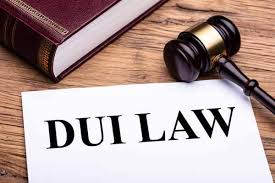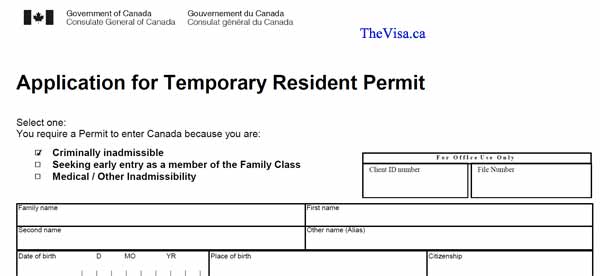Entering Canada with a DWI
There are many different types of charges associated with operating a motor vehicle under the influence of alcohol or drugs. The most commonplace term is DUI, an acronym that stands for Driving Under the Influence. So if you've been charged with a DWI (Driving While Intoxicated), what exactly does that mean? Some states replace the DUI charge with the DWI acronym, which means you can only be charged with a DWI. The problem is some states actually consider them to be two distinct charges. In states where both terms are used, quite often a DWI signifies that you have been charged with driving under the influence of alcohol, while a DUI signifies that you have been charged with driving under the influence of either alcohol or drugs. Another problem is that some states consider one charge to be more serious that the other. Needless to say, whether you have a DUI or a DWI on your record, you are going to risk being denied entry to Canada if you have not obtained special permission.
 When you attempt to cross the Canadian border or enter Canada at a port of entry, the Canada Border Services Agency will screen you with the aid of the Canadian Police Information Centre (CPIC) database. This database has access to your criminal background at both the national (FBI) and local (DMV) level. If you have any history of DWI convictions, or even a recent DWI arrest, it is likely that the border officer will declare you inadmissible to Canada. If you want to be approved for entry into Canada, you will need to apply for a Temporary Resident Permit (TRP). The TRP will allow you to visit Canada on a temporary basis (up to 3 years) and can be processed fairly quickly if all necessary paperwork and documentation is provided. For people interested in finding a permanent solution to their DWI charge, you can apply for a Criminal Rehabilitation. For this application, you will need to apply at a Canadian Consulate and show evidence that you have completed your full sentence at least 5 years ago. A Criminal Rehabilitation application takes much longer to process than a TRP, but the payoff is you will never have to apply for a TRP again once you are successfully approved.
When you attempt to cross the Canadian border or enter Canada at a port of entry, the Canada Border Services Agency will screen you with the aid of the Canadian Police Information Centre (CPIC) database. This database has access to your criminal background at both the national (FBI) and local (DMV) level. If you have any history of DWI convictions, or even a recent DWI arrest, it is likely that the border officer will declare you inadmissible to Canada. If you want to be approved for entry into Canada, you will need to apply for a Temporary Resident Permit (TRP). The TRP will allow you to visit Canada on a temporary basis (up to 3 years) and can be processed fairly quickly if all necessary paperwork and documentation is provided. For people interested in finding a permanent solution to their DWI charge, you can apply for a Criminal Rehabilitation. For this application, you will need to apply at a Canadian Consulate and show evidence that you have completed your full sentence at least 5 years ago. A Criminal Rehabilitation application takes much longer to process than a TRP, but the payoff is you will never have to apply for a TRP again once you are successfully approved.
If you have a DWI on record and want to enter Canada, contact our team to book a consultation.
Why am I Inadmissible to Canada?
It is not common knowledge that a misdemeanor charge like a DWI will effect you when traveling to Canada. Despite the perception of a DWI as a relatively "minor" charge, in the Canada Criminal Code it can be classified as an indictable offense. This means that even if it is your first DWI or you pleaded down the charge to a lesser charge like Reckless Driving, you still have the potential of being denied entry to Canada at the border or port of entry into Canada.
I have Received an Acquittal for my DWI, can I enter Canada?
Another common misconception is that if you have received an acquittal for your DWI, you are no longer considered inadmissible to Canada. There are a couple of possible scenarios in this case. First, the charges may have been dropped or withdrawn by the prosecutor. Second, you may have been found "not guilty", which is also called "no conviction". If you are in one of these two camps in regards to your DWI, then you will need to prove that you have indeed received an acquittal. The border officer may screen you and only see the DWI charge on your record. It is possible that the acquittal may not have been registered in the database.
When crossing the border or arriving at a port of entry into Canada, you can never be too cautious. If your DWI charge was dropped or you were not convicted, you should have the proof ready to show to the CBSA officer in case there is any confusion or missing records. Some documentation from the courthouse showing your acquittal in writing will help satisfy the officer that you are admissible to Canada. In the end, if the officer doesn't have the information necessary to confirm your circumstances, the burden of proof lies on you, the traveler to Canada. It is best to always be prepared and anticipate problems before they happen.
DWI Charges and Drugs Charges
A DWI, unlike some other drunk driving related charges, is very general. You do not necessarily have to be impaired by alcohol to receive a DWI. For example, you may have been under the influence of an illegal drug such as methamphetamine, MDMA (ecstacy), or marijuana (depending on the state). Sometimes people receive a DWI charge when driving on prescription drugs. Even though they are considered legal, you are still responsible for putting yourself in a situation where compromised awareness or reaction times could result in harm to yourself and others.
What U.S. States use the DWI Acronym?
The states that use DWI (in alphabetical order) are: Alabama, Alaska, Arizona, Arkansas, California, Colorado, Connecticut, Florida, Georgia, Indiana, Iowa, Kansas, Kentucky, Louisiana, Maine, Maryland, Massachusetts, Minnesota, Mississippi, Missouri, Montana, Nebraska, New Hampshire, New Jersey, New Mexico, New York, North Carolina, Oregon, Pennsylvania, South Carolina, Texas, Virginia, Washington, and Wisconsin. Some states use the DWI charge exclusively while other states will use either DWI or DUI depending on the details of the offense (for example, what your blood alcohol content was at the time of your arrest).
Canada and DWI Law
Impaired driving offenses are very common in the U.S., and odds are you may know someone who has a DWI or DUI on his or her record. According to MADD (Mothers Against Drunk Driving), every 2 minutes a person is injured in a drunk driving crash. This creates the perception among people that it is not a serious crime, certainly not on the same level as something like theft or assault charges. As absurd as it may seem, Canada treats DWI charges very critically and they are often on par with other indictable offenses. If you don't want to face refusal at the border, or simply want to avoid an embarrassing situation, you will need to ensure you have the documentation necessary to overcome your inadmissibility to Canada. Seeking professional legal help to prepare a Temporary Resident Permit (TRP) or Criminal Rehabilitation application will most likely save you headaches in the long run.
Does the State where the DWI Happened Affect Admissibility?
Every state treats their DWI charges in a unique way. Legislation can be quite different from one state to the next, but it doesn't really make a difference when traveling to Canada. The Canadian equivalent charge to a DWI, no matter the state, is always interpreted the same way: as an indictable offense. If your DWI charge has been expunged (charge has been disposed and your record of the offense is sealed) then you should have no problem entering Canada. However, not all states allow charges to be expunged, so this may not be an option.
The 3 Requirements for Receiving a DWI
In most cases, there are three criteria that you must meet in order to be convicted of a DWI. First, you must be operating a vehicle (what type of vehicle that is varies from state to state). Second, you must be impaired. Third, the impairment must be caused by either alcohol or drugs. Many people believe that you need a blood alcohol content (BAC) of above .08 to receive a DWI, but this is not always the case. An arresting officer might determine that you are impaired while operating a vehicle due to alcohol or drugs even if you do not have a BAC above the legal limit. On the other hand, some drivers may receive a DWI even if they show no signs of intoxication. In this case, if you take a breathalyzer and blow over the legal limit, you still receive a DWI (referred to as a "per se" violation).
How Long do I have to Wait after my DWI to go to Canada?
If you have prepared a Temporary Resident Permit (TRP), you may be able to travel to Canada even if your offense was in the last few years. As long as you can prove that you have complied with all aspects of your sentencing and that you are unlikely to re-offend, the border officer will grant you a temporary visit period to Canada. However, if you want to wait it out without going through the application process, there is the option of deemed rehabilitation. To qualify for deemed rehabilitation and be admissible to Canada, there are very strict criteria. You may only have a single DWI misdemeanor charge on your record. After completing the terms of your sentencing (including probation served, fines paid, courses completed, etc.) you must wait for at least 10 years before attempting to visit Canada. Only then will you qualify for deemed rehabilitation. However, if you receive any additional charges in the interim, you no longer qualify, no matter how long you wait.
If you are planning to travel to Canada with a DWI, contact us today for a consultation. Our team of experts (Lawyers and consultants) can help determine the best steps to take in overcoming your inadmissibility.

